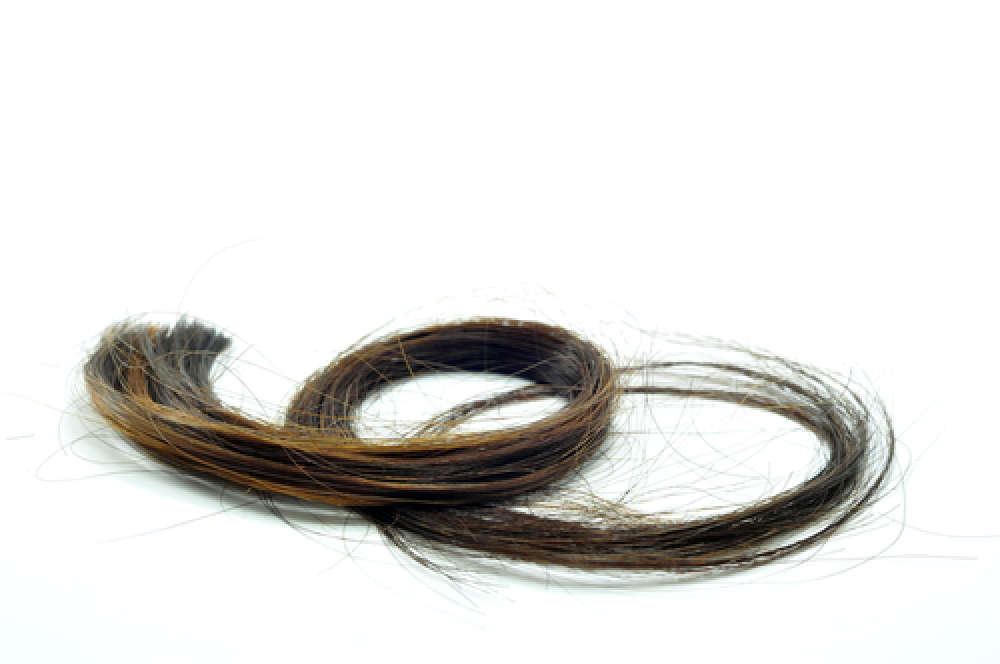Playing with your hair is a harmless habit. Many of us do it when we’re tired or bored. But for millions of people, playing with their hair goes beyond twirling it between their fingers. According to the National Center for Biotechnology Information, up to four percent of the population suffer from trichotillomania, a disorder characterized by a recurrent, irresistible urge to pull hair out of the scalp, eyebrows, eyelashes and other parts of the body. Women are four times as likely as men to be affected. Most people with trichotillomania pull enough hair to have noticeable thin or bald patches on the head or other parts of the body. Some are missing eyelashes or eyebrows and some chew or eat the hair they pull out.
The Mentality Behind Trichotillomania
Trichotillomania is not just a nervous habit, although it may be triggered or made worse by stress. It is generally classified as an impulse control disorder, meaning it is driven by an uncontrollable impulse or urge to perform a harmful act. The individual feels increasing tension that can only be relieved by performing the act; afterward, there is often a sense of shame or regret. In some people, the disorder is mild and manageable, but for many the compulsion to pull out the hair is overwhelming, and, if not treated, can have serious consequences for health and well-being.
People who pull out their hair are not trying to hurt themselves; their need to pull is neurologically-driven. Although doing so acts as an immediate soothing mechanism, repeated episodes of hair-pulling, and the disfigurement that results, cause significant emotional distress. Most people try to style the hair to cover the bald patches or wear hats or wigs or false eyelashes to disguise the condition. Embarrassment and shame may cause them to shy away from social and professional opportunities, leading to isolation, low self-esteem and a sense of having lost control of their lives. Depression and anxiety are common among those with trichotillomania.
It isn’t known exactly what causes trichotillomania, but there may be a genetic component to the disorder; having a close relative who is affected increases an individual’s risk. An imbalance in the brain chemicals serotonin and dopamine might play a role. It usually develops between the ages of 11 and 13, and while it is also seen in younger children—even as young as a year old—those cases are often mild and resolve after a year or so without treatment. For whom it is a lifelong disorder, complications include abrasions and infections in the area where the hair is pulled, and digestive problems for those who eat the hair. Many are also afflicted with other body-focused repetitive disorders such as skin picking, nail biting or chewing the lips.
Effective Treatments for Trichotillomania
To treat trichotillomania, a combination of education, medication, and Cognitive Behavior Therapy (CBT) tend to produce the most successful results. CBT is an approach in which patients learn to change their behaviors, thoughts, and feelings so they can identify and control the impulses that lead to pulling without giving in to them. CBT will often include a behavioral technique known as Habit Reversal Training. Habit Reversal Training is a three-step procedure designed to increase awareness, to learn relaxation strategies, and to identify a behavior that is incompatible with the hair pulling. This behavior, referred to as a “competing response,” typically involves using the same muscles as in hair pulling, but used in a discreet manner that would not be easily noticed if done in public. Clenching one’s fist and pressing their arm to their side is a common competing response for hair-pulling.
Trichotillomania can be a chronic and obstinate disorder. For some, it is a way of dealing with negative feelings and emotions such as stress, loneliness, or anxiety. However, the negative effects and humiliation that result can exacerbate those emotions. Early detection and intervention are critical since, with the exception of very young children, the disorder seldom goes away without treatment. Psychotherapy can help manage the emotions and eliminate the impulsive behavior that wreaks havoc on health and quality of life.
Francine Rosenberg is a licensed clinical psychologist in New Jersey, practicing at Morris Psychological Group PA in Parsippany. Her journey in mental health began at Lafayette University. There she obtained her Bachelor of Arts degree in Psychology. She then went on to achieve a Masters of Science and her doctorate in psychology degree at Nova Southeastern University. Dr. Rosenberg has also had the opportunity to take part of the New Jersey Psychology Internship Program.
Transitioning from the academic life, Dr. Rosenberg moved on to working with patients at Marlboro Psychiatric Hospital, Fair Oaks Hospital, and the Newark Beth Israel Medical Center. At Newark Beth Israel Medical Center, she worked closely with adolescents in the Behavioral Health Services department. She also ran a psychoeducational program for the staff and community of Newark, alongside working with the patients.
Dr. Rosenberg primarily works at the Morris Psychological Group PA, but is also on the medical staff at Morristown Memorial Hospital and on the Craniofacial Team at Goryeb Children’s Hospital. When not with patients, she lectures on topics such as depression, Obsessive-Compulsive Disorder, stress management, and much more. She was a past president of the Morris County Psychological Association. Other associations she is affiliated with include the New Jersey Psychological Association, New Jersey Affiliate of the National Obsessive-Compulsive Disorder Foundation, National Obsessive-Compulsive Foundation, and the New Jersey Association of Cognitive Behavior Therapists.



